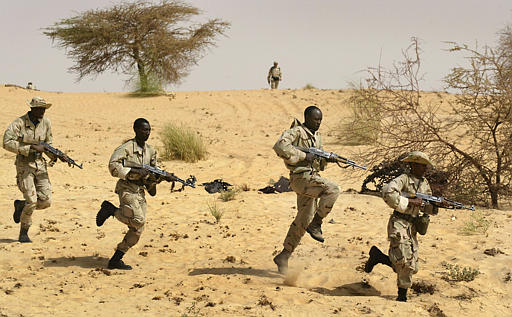The desert ambush that ended in Briton's murder

Your support helps us to tell the story
From reproductive rights to climate change to Big Tech, The Independent is on the ground when the story is developing. Whether it's investigating the financials of Elon Musk's pro-Trump PAC or producing our latest documentary, 'The A Word', which shines a light on the American women fighting for reproductive rights, we know how important it is to parse out the facts from the messaging.
At such a critical moment in US history, we need reporters on the ground. Your donation allows us to keep sending journalists to speak to both sides of the story.
The Independent is trusted by Americans across the entire political spectrum. And unlike many other quality news outlets, we choose not to lock Americans out of our reporting and analysis with paywalls. We believe quality journalism should be available to everyone, paid for by those who can afford it.
Your support makes all the difference.Briton Edwin Dyer was captured in Mali and held hostage for more than four months before being murdered.
His ordeal started with a so-called "show execution" where kidnappers fired a gun just an inch away from the head of a member of his party as they attacked the group's convoy.
He was then taken with three other tourists - two Swiss citizens and a German woman - who were on their way back from a festival of nomad culture at Anderamboukane in Mali on January 22.
Mr Dyer, who spoke fluent German and was working in Austria, was stopped near the border with Niger by armed Tuareg rebels, who shot out the tyres of the first vehicle in his convoy.
The driver of the second car turned it around and escaped across the bush. It was hit by three bullets but nobody was hurt.
Local travel company staff later found the shocked cook who was accompanying the tourists. He said he had been subjected to the "show execution".
Werner Gartung, chief executive of German tour operator Oase Reisen, said: "The three cars were still in Mali on the way back to Niger.
"They were arrested by Tuareg with automatic rifles who shot immediately into the tyres of the first car with the four clients.
"The second car with the three clients could turn and drive across the bush, three bullets did hit the car, but nobody was hurt."
In total there were seven tourists in the group visiting the Anderamboukane festival, which takes place in January of every odd year and is billed as a "trans-frontier celebration of Tuareg culture, music, sports, and crafts".
In recent years northern Mali has been the scene of violent clashes between Tuareg rebels and the Malian army.
The German woman and one of the Swiss tourists were later released, along with a Canadian diplomat and his assistant, who were taken hostage in a separate incident. Their captors said they were exchanged for four of their imprisoned fighters.
In February, an Islamic extremist group claimed responsibility for the kidnapping.
According to Site Intelligence, a US group which monitors extremist websites, the claim came from al Qaida in the Islamic Maghreb (Aqim).
The group, which joined terror leader Osama bin Laden's network in 2006 and conducts several bomb and ambush attacks each month, released images of some of the captives and also said it was holding two Canadian diplomats seized two months ago.
Aqim spokesman Salah Abu Muhammad made the claim in an audio message, Site said.
"We announce to the general public that the mujahideen reserve the right to deal with the six kidnapped according to Islamic Shariah (law)," he reportedly said.
"On the other hand, the mujahideen will announce later, Allah willing, their conditions in exchange for the release of the kidnapped."
On April 26, al Qaida posted a statement on an Islamic website stating that they would execute Mr Dyer unless the UK authorities released Jordanian extremist Abu Qatada from prison within 20 days.
The radical cleric was first arrested in the wake of the September 11 terror attacks and has been described as "al Qaida's spiritual leader in Europe".
He has been in prison since 2005 and is awaiting deportation to Jordan. A multimillion-pound ransom is also thought to have been demanded.
The Law Lords ruled in February that Qatada can be deported, but his lawyers are appealing against the verdict, claiming he faces being tortured if he is returned to the Middle East country.
On May 16, an Algerian newspaper reported that al Qaida had demanded 10 million euros (£8.6 million) in exchange for Mr Dyer and the remaining Swiss hostage.
Al Qaida's chief in the desert region, Hamid Essoufi, also known as Abdelhamid Abu Zeid, was reportedly behind the ransom demand.
In return, al Qaida would first release the Swiss hostage as a sign of goodwill and then free Mr Dyer weeks later.
But in a statement on an Islamist website four days later, Aqim made no mention of the ransom and said it would give the UK authorities a further 15 days to release Qatada before carrying out its threat to kill Mr Dyer.
"After the British negotiator's request for extra time to settle the file, we announce to public opinion that the organisation has decided to give a final additional period of around 15 days from the end of the first period," the group reportedly said.
"We call on the family of the British hostage to put pressure on the government and we assure them that this extra time limit will not be repeated..."
Join our commenting forum
Join thought-provoking conversations, follow other Independent readers and see their replies
Comments